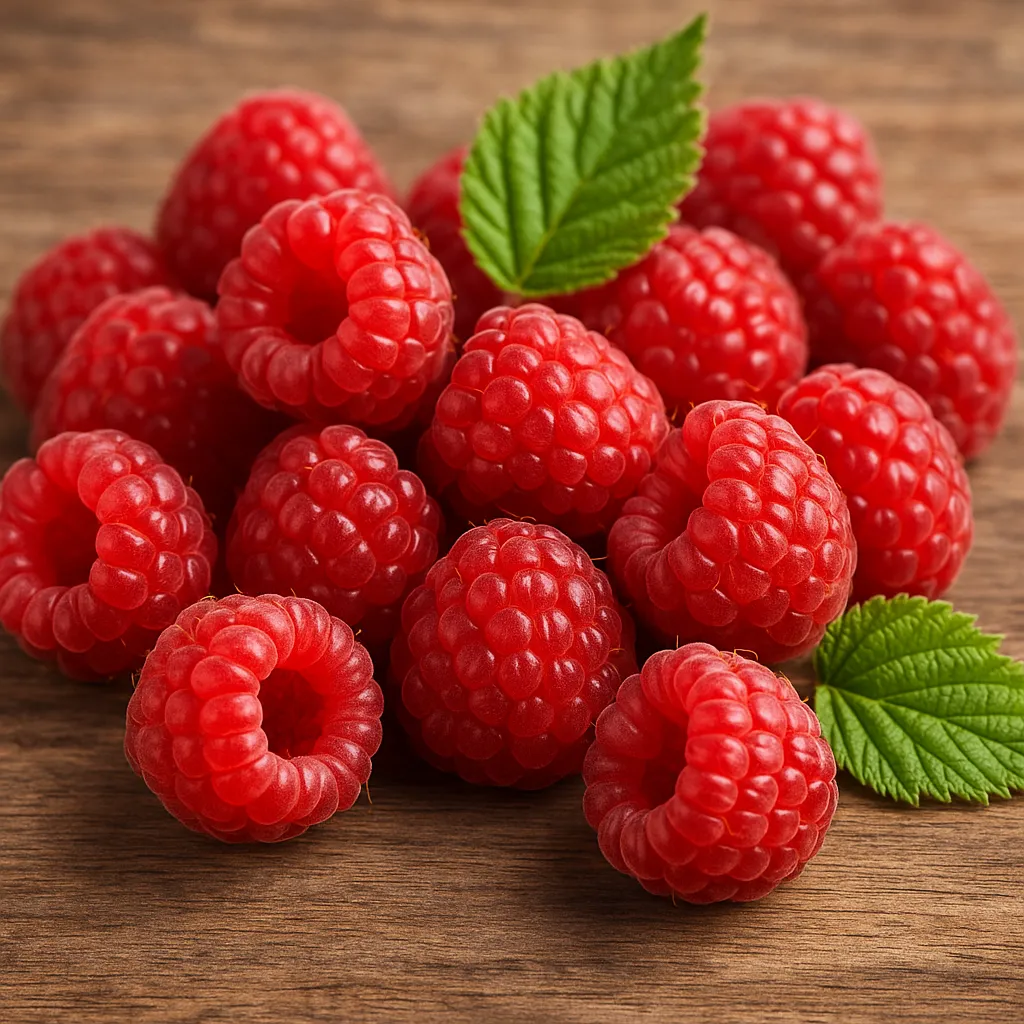Raspberry Nutrition Facts and Health Benefits: The Sweet Superfruit Explained
Discover the full nutrition facts and health benefits of raspberries. Learn how this antioxidant-rich superfruit supports heart health, digestion, immunity, and more.

Raspberries are more than just a delicious summer treat — they are a nutritional powerhouse packed with vitamins, minerals, fiber, and antioxidants. Known for their vibrant color and delicate texture, raspberries have become one of the most popular berries in the world for both their taste and their impressive health benefits. In this article, we will explore the nutritional profile of raspberries, their health-promoting compounds, and how they can support your overall well-being.
What Makes Raspberries So Nutritious?
Raspberries are naturally low in calories but high in essential nutrients. One cup of fresh raspberries (approximately 123 grams) contains:
- Calories: 64
- Carbohydrates: 15 grams
- Fiber: 8 grams
- Protein: 1.5 grams
- Fat: 0.8 grams
- Vitamin C: 54% of the Recommended Daily Value (DV)
- Manganese: 41% of the DV
- Vitamin K: 12% of the DV
- Magnesium, Copper, and Iron: Trace amounts
What truly sets raspberries apart is their fiber content. With about 8 grams per cup, they provide one of the highest fiber concentrations among fruits. This makes them excellent for digestive health, blood sugar control, and weight management.
Rich in Powerful Antioxidants
Raspberries are loaded with antioxidants — natural compounds that protect the body from oxidative stress and inflammation. Some of the most prominent antioxidants in raspberries include:
- Anthocyanins: Pigments that give raspberries their deep red color and contribute to heart health.
- Ellagic acid: Known for its potential cancer-fighting properties and its ability to protect DNA from damage.
- Quercetin and Kaempferol: Flavonoids that support immune function and may help lower blood pressure.
These antioxidants help combat free radicals in the body, reducing inflammation and slowing down the aging process of cells.
Health Benefits of Raspberries
1. Supports Heart Health
The combination of fiber, potassium, and antioxidants in raspberries contributes to a healthy cardiovascular system. Fiber helps reduce LDL (bad) cholesterol, while polyphenols like anthocyanins improve blood vessel function and lower inflammation.
2. Aids in Weight Management
Due to their high fiber and water content, raspberries can help you feel fuller for longer periods, making them an ideal addition to a weight-loss or maintenance diet. They also have a low glycemic index, which means they have a minimal impact on blood sugar levels.
3. Improves Digestive Health
Fiber is essential for proper digestion, and raspberries provide both soluble and insoluble fiber. These fibers promote healthy bowel movements, prevent constipation, and support the growth of beneficial gut bacteria.
4. Boosts Immunity
Thanks to their high vitamin C content, raspberries can strengthen the immune system, helping your body fight off infections. Vitamin C also plays a crucial role in collagen production, which supports healthy skin and connective tissues.
5. May Protect Against Cancer
Research suggests that the ellagic acid and anthocyanins in raspberries may help inhibit the growth of cancer cells. While more studies are needed, the evidence so far indicates that raspberries could play a role in cancer prevention, particularly for colon, breast, and esophageal cancers.
6. Supports Healthy Aging
The antioxidants in raspberries help protect skin cells from damage caused by UV rays and pollution. Regular consumption may reduce wrinkles, improve skin elasticity, and promote a youthful glow.
7. Stabilizes Blood Sugar Levels
Raspberries have a low glycemic index and high fiber content, making them suitable for people with diabetes or insulin resistance. The fiber slows down carbohydrate digestion, preventing sudden spikes in blood sugar levels.
How to Incorporate Raspberries Into Your Diet
Raspberries are incredibly versatile and can be enjoyed in many ways:
- Add them to smoothies for a tangy, nutritious boost.
- Sprinkle them on oatmeal, yogurt, or pancakes for natural sweetness.
- Use them as a topping for desserts like cheesecake or fruit tarts.
- Mix them into salads with spinach, nuts, and feta cheese for a refreshing twist.
- Freeze them for later use in baking or healthy snacks.
Whether fresh or frozen, raspberries retain most of their nutrients and flavor, making them a convenient choice year-round.
Fun Facts About Raspberries
- There are over 200 varieties of raspberries worldwide, including red, black, purple, and golden types.
- Each raspberry is made up of many small drupelets, each containing a tiny seed.
- Raspberries belong to the rose family, which also includes strawberries, apples, and cherries.
Possible Precautions
While raspberries are safe for most people, it’s important to wash them thoroughly before eating to remove pesticide residues. People with sensitive stomachs might experience mild bloating due to their high fiber content. Moderation is key to enjoying their benefits without discomfort.
Conclusion
Raspberries are a delicious and nutrient-dense fruit that can support your health in many ways — from improving heart health and digestion to boosting immunity and skin vitality. Incorporating them into your daily diet is an easy and flavorful way to take advantage of their incredible benefits. Whether you enjoy them fresh, frozen, or blended into your favorite recipes, raspberries are truly one of nature’s sweetest gifts for a healthy lifestyle.
Tip: Choose brightly colored, firm raspberries and store them in the refrigerator for up to two days to maintain their freshness and nutrient content.


